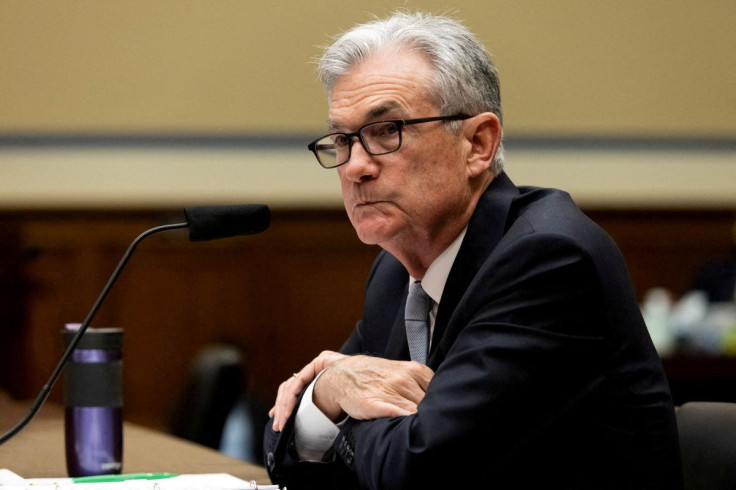Fed's Powell Says Policy Pivot On Track Despite 'Uncertain' Impact Of Ukraine War

The Federal Reserve will move forward with plans to raise interest rates this month to try to tame high inflation, but the outbreak of war in Ukraine has made the outlook "highly uncertain" for U.S. central bank policymakers as they plan their next steps, Fed Chair Jerome Powell said on Wednesday.
In prepared remarks for his testimony to the U.S. House of Representatives Financial Services Committee, Powell reiterated the core Fed narrative that high inflation and an "extremely tight" labor market warrant higher interest rates.
"We expect it will be appropriate to raise the target range for the federal funds rate at our meeting later this month," Powell said, and that the Fed will follow that later this year with reductions to its roughly $8.5 trillion portfolio of government securities.
But in his opening statement to lawmakers Powell gave no hint about how far or how fast the Fed may need to go in its policy tightening, said Fed officials still expect inflation to ease later this year, and framed the start and conclusion of his remarks with the events unfolding in Ukraine.
U.S. equity index futures pared gains slightly after the release of Powell's prepared remarks, while the yield on 2-year Treasuries rose. The U.S. dollar was trading higher against a basket of major trading partner currencies.
"He preferred to keep the Fed's options open ... there was little pushback on current market rate expectations, which have plummeted since Russia's invasion," said Paul Ashworth, chief U.S. economist at Capital Economics.
The coronavirus pandemic's impact on the economy appeared to be easing, Powell said in his prepared remarks, hiring remains strong, and inflation had emerged as a chief risk.
Inflation "is now running well above our longer-run objective of 2%. Demand is strong, and bottlenecks and supply constraints are limiting how quickly production can respond," the Fed chief said. He added that those supply disruptions had been "larger and longer lasting than anticipated," and restated the Fed's promise to be as tough as necessary to bring prices back into line.
While some of those current inflation pressures are expected to ease later this year, "we are attentive to the risks of potential further upward pressure ... We will use our policy tools as appropriate to prevent higher inflation from becoming entrenched."
Yet Powell also acknowledged the new complexity the Fed faces from events in Europe that have the potential to both add to price pressures, but also to potentially undercut growth.
"The near-term effects on the U.S. economy of the invasion of Ukraine, the ongoing war, the sanctions, and of events to come, remain highly uncertain," he said. "Making appropriate monetary policy in this environment requires a recognition that the economy evolves in unexpected ways. We will need to be nimble in responding to incoming data and the evolving outlook."
IMPACT OF WAR
Persistently high inflation, now at triple the Fed's 2% target, has surprised policymakers who thought the run of fast price increases triggered by the pandemic would prove temporary.
Since last fall they've been debating what to do about it.
The central bank is expected to raise its benchmark overnight interest rate, currently set near zero, at its March 15-16 policy meeting. More rate hikes are expected throughout the remainder of this year, steadily increasing the cost of credit for consumers and businesses.
While high inflation remains the Fed's prime focus, Russia's invasion of Ukraine has added a new dimension to policymakers' analysis, with the potential to pull monetary policy in opposite directions. Inflation may be driven even higher, for example, with energy prices rising, and new limits around the movement of people and goods.
But global economic growth may take a hit just as U.S. and European governments were hoping the pandemic was easing to the point that the last restrictions on businesses, schools, and socializing could be dropped.
Should the war in Ukraine grind on or even broaden into a wider conflict, the Fed could be called on to keep global dollar markets stable, a job that might conflict with plans to shrink its asset holdings.
© Copyright Thomson Reuters 2024. All rights reserved.



















